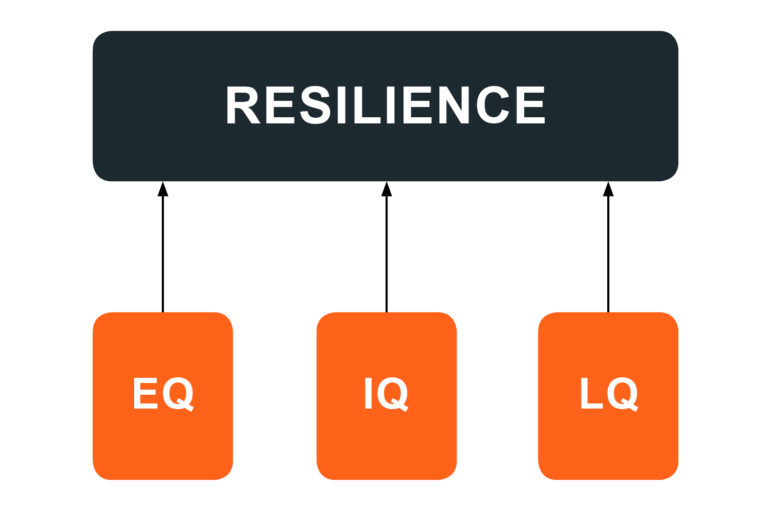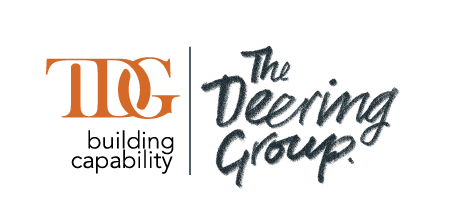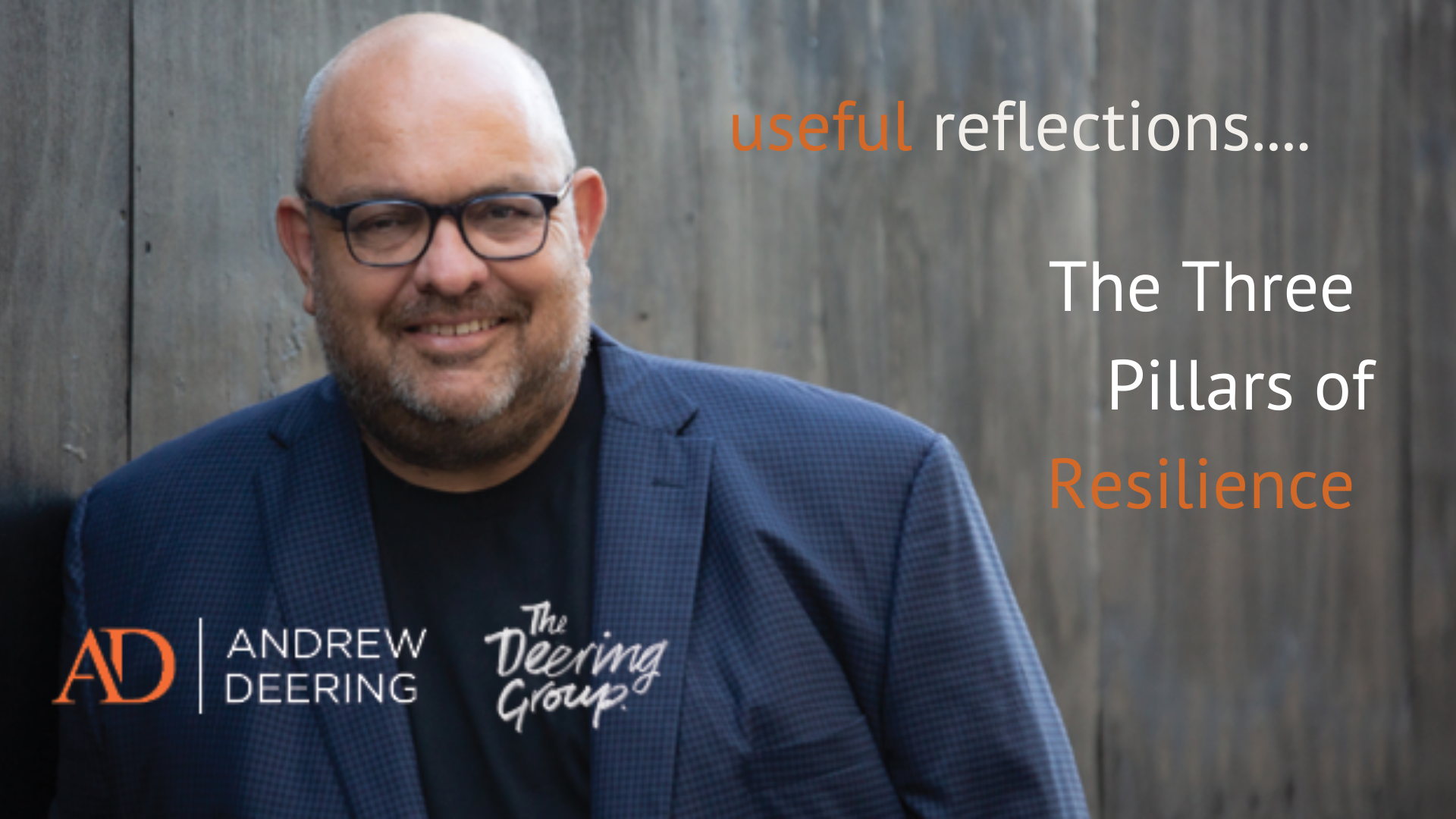Resilience is one of those words very popular in discussions today. We talk about the need to be resilient, but what does it mean?
To me, resilience is an incredibly important quality. I think we should all understand and develop our resilience, so we are better able to serve and be part of our communities, and also ensure we are taking the best care of ourselves.
All of us have been in situations where life hasn’t felt so kind to us. We’ve encountered challenges, been knocked over and had to learn to pick ourselves up again and again. This is where healthy resilience is important.
Recently, we talked about goals and how our ability to achieve them relies on three key elements: Routine, Rigour and Resilience.
In terms of goals, resilience refers to our capacity to recover quickly from difficulties. How elastic are we in terms of who we are and how we think so we can regroup and move forward?
In the model below, I put forward that resilience has three pillars: EQ, IQ and LQ.

A lot of research and discussion exists around EQ and IQ. I won’t go into too much depth on these two pillars, because I don’t think there’s much to be added to the discussion, at the moment.
However, I will offer my simple explanations. EQ (emotional intelligence) refers to our ability to read and understand ourselves and others – our thoughts, feelings and behaviours. IQ (intelligence quotient) is our ability to understand and learn in the context of acquiring a skills, knowledge and behaviours.
LQ as a term is less discussed, and less understood. To me, LQ (learning quotient) is our ability to manage change and enable a shift through the process of learning. So what is LQ about, it’s about three things for me.
Our willingness to learn from all things (good, not so good, and bad)
In that willingness how we learn, our processes and approach
Lastly and most importantly our ability to apply that learning and make it a part of who we are and how we do life going forward.
I would offer that the more powerfully developed your LQ, the more resilient you are – and the better able you are to grow your EQ and IQ. I do not see EQ, IQ or LQ as static, we have the power to change them.
Each of these pillars are available to us in different quantities at different times, depending on our context, our wellness, our mindfulness and generally “where we are at”. Our work is to maintain a balance between the three pillars and develop them accordingly, to ensure our resilience is strong, healthy, balanced and useful to us whatever we are doing.
No matter what field we want to achieve in, our success is a direct factor of how well suited and developed our EQ, IQ and LQ are. In other words, the more resilient we are, the more successful our journey through life will be.
Now, if we can agree that resilience is useful to us all and something we should continually develop, then what are some of the core activities that support the development of our EQ, IQ and LQ?
Let’s look at five key elements. There may be other elements you consider to be useful in this work on resilience, and I’d love to hear about them. But for now, let’s concentrate on these five.
1. Goals
The key to developing our resilience is to have something to attach it to. Goals anchor our resilience. One of the common challenges we face when building our resilience is that we don’t have a clear goal. Without a goal to achieve, how can our resilience come to the fore clearly in the face of setbacks? What is our resilience attached to, anchored to ,and supporting?
2. Useful Belief (not Positive thinking)
Many people would suggest that positive thinking is a great way to build resilience. I argue the work by Chris Helder in his book, Useful Belief, is far more powerful. If you haven’t read this book, I suggest you do – it’s a fantastic read. Helder challenges the “be positive industry”. He suggests that everything isn’t always good – sometimes, bad things happen to good people. What matters is that you have useful beliefs, i.e. practical strategies to dig yourself out of the places that don’t serve you. In this sense, useful belief is much more effective than simple positive thinking.
3. Meditation
Research demonstrates the benefits of meditation – everything from reduced stress and anxiety control to improved self-awareness and concentration. Even just 15 minutes of meditation each day can do wonders for emotional health, which, in turn, builds resilience. You can find out more about the 12 benefits of meditation in this informative article.
4. Community
Another critical area to support your journey in resilience is to have a good community. Some people may refer to their “tribe”. My preference is to consider community – how people work together and support each other to reach their own goals and a common goal. We all need a community that enables us to learn, grow and be supported.
In her book, The Lickable Third, Lisa O’Neill puts forth the idea that within our network we will want to “lick” a third of our connections, i.e. we really enjoy their company and them. Just like that particular lollipop we loved as a kid (Melody Pops for me). They’re the ones we should focus our effort on and engage with. So, in your community, who is in your third? Who do you spend the most time with? Who gives you the most support and who do you give the most support to? These people are likely to help develop your resilience.
5. Breathe
Lastly, breathe. When things are at their best, or at their hardest and darkest, we should maintain a regular breathing practice. You may chuckle and think, “Well, I do this every moment of every single day!” What I’m talking about is taking a mindful approach to a breathing method. When we breathe in a controlled, focused way, we feel re-energised. An approach I particularly like is the Wim Hof Method. This method focuses on deep, rhythmic inhalations and exhalations, where the breath is held for a certain amount of time. The Wim Hof Method gives us control over our body and mind – in essence, strengthening our resilience.
For me, my level of resilience is a reflection of how well the three pillars of EQ, IQ and LQ are working. It’s also an indication of how well I am engaging in the above five elements. When each pillar and element work well, and when I continue to work on them, that’s when I find my resilience is at most its most healthy, and useful. When the elements are not working well, that’s when I’m less able to pick myself back up and get moving.
So, my question for you is, how does your resilience measure up? How robust are your EQ, IQ and LQ? Do you need to do some more work in these areas to improve your resilience, regardless of the situation you are in?
I’d love to hear your thoughts and any practices you may undertake to work on your EQ, IQ and LQ in supporting your resilience.
Be kind, be well, be true, be you.


